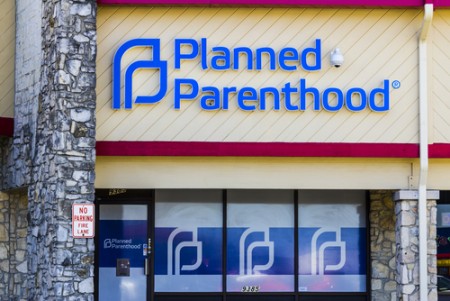SCOTUS will decide whether Medicaid beneficiaries can sue over state's defunding of Planned Parenthood

The U.S. Supreme Court agreed Wednesday to consider whether Medicaid beneficiaries can sue over South Carolina’s decision to defund Planned Parenthood. (Image from Shutterstock)
The U.S. Supreme Court agreed Wednesday to consider whether Medicaid beneficiaries can sue over South Carolina’s decision to defund Planned Parenthood.
Although federal law generally bars Medicaid from paying for abortions, it does allow payment to abortion providers for other medical services, SCOTUSblog explains. Planned Parenthood had provided birth control, cancer screenings and physical exams to low-income South Carolina residents before the state cut off all Medicaid funds for the organization in 2018, according to the group’s brief opposing cert.
Planned Parenthood South Atlantic and one of its Medicaid patients sued.
At issue is whether beneficiaries can sue under Section 1983 of the Civil Rights Act under an “any-qualified provider” provision of the Medicaid Act.
The law provides that “any individual eligible for medical assistance” under the law can obtain care from any institution ready and qualified to perform the services, according to a brief opposing cert by Planned Parenthood.
Besides SCOTUSblog, publications with coverage include the New York Times, the Washington Post and USA Today. How Appealing links to additional coverage.
The 4th U.S. Circuit Court of Appeals at Richmond, Virginia, had allowed the lawsuit, according to New York Times.
“This case is, and always has been, about whether Congress conferred an individually enforceable right for Medicaid beneficiaries to freely choose their health care provider,” the 4th Circuit said. “Preserving access to Planned Parenthood and other providers means preserving an affordable choice and quality care for an untold number of mothers and infants in South Carolina.”
Federal appeals courts are split on the issue of a private right of action, according to South Carolina.
“Whether a private party can drag a state into federal court for disqualifying a provider should not turn merely on where that state is located,” says the state’s cert petition.
But the brief opposing cert argues that there is no split because the two appeals courts that found no private right of action ruled in cases in which a medical provider was terminated for cause, a factor not present in the South Carolina case.
South Carolina is represented by Alliance Defending Freedom, a conservative legal advocacy group.
“Taxpayer dollars should never be used to fund facilities that make a profit off abortion,” said Alliance Defending Freedom lawyer John Bursch in a statement cited by news coverage.
The case is Kerr v. Planned Parenthood.
Write a letter to the editor, share a story tip or update, or report an error.



